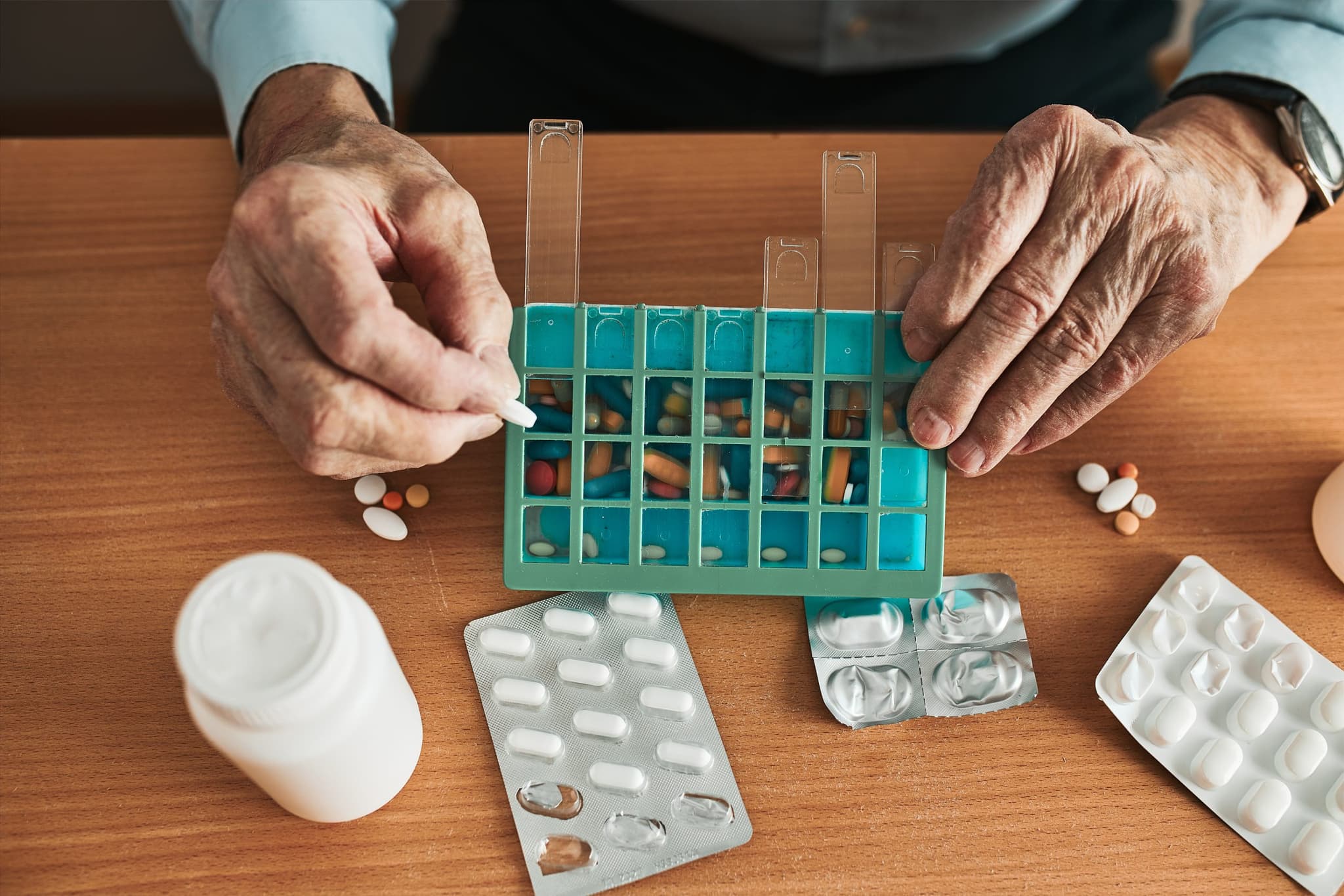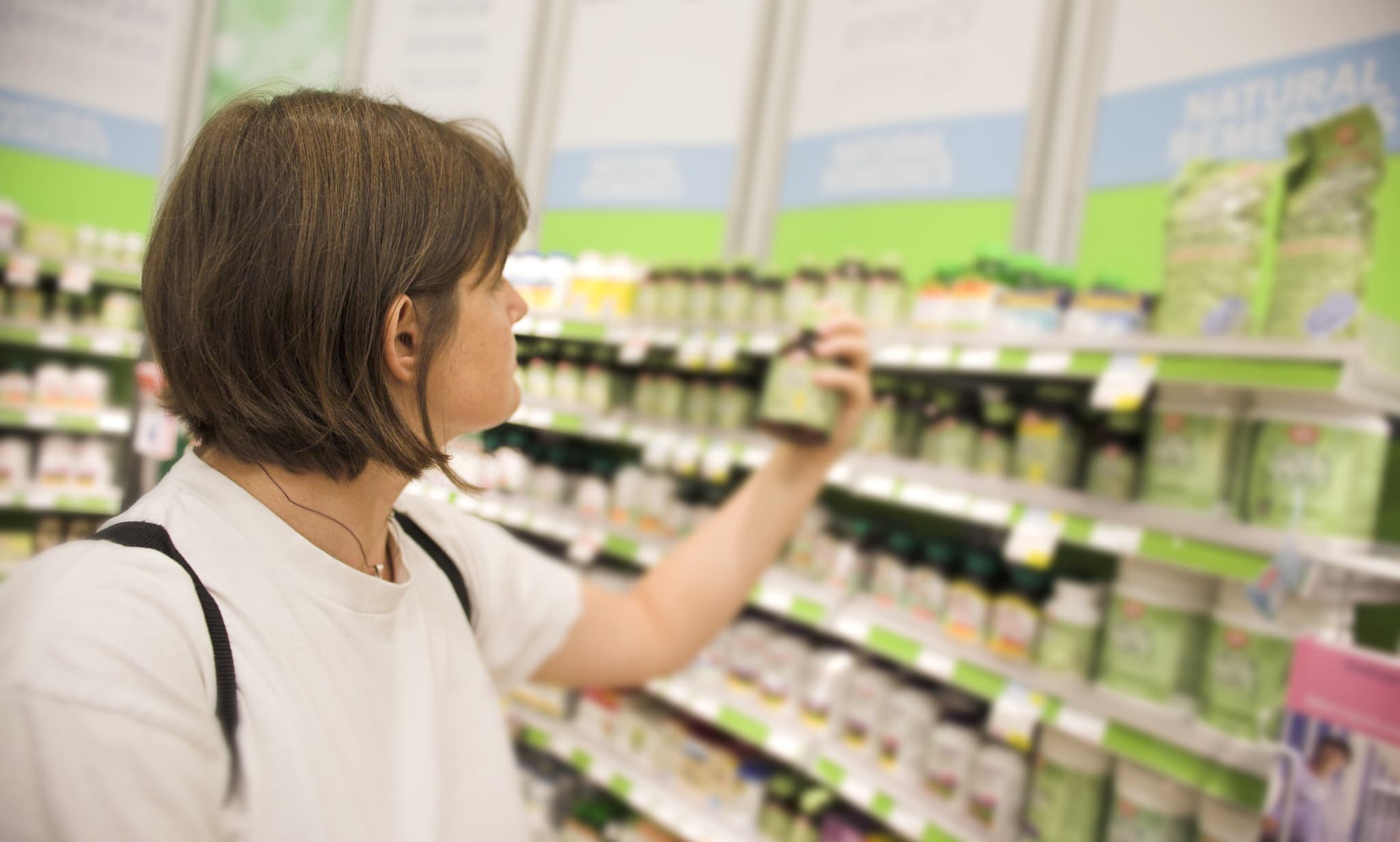
2023-09-26T14:17:20
Managing Medications and Polypharmacy: Tips for Safer Medication use in Aging Adults
- Family Medicine
- Internal Medicine
- Pharmacy
August 14, 2019 | Pharmacy
Specialties:Pharmacy

Properly storing and disposing of medicine is an important part of medicine safety. When medications expire, they can become less effective and pose health risks due to a change in chemical composition or a decrease in strength. Old antibiotics that have decreased in strength, for example, can fail to treat infections, leading to the possibility of antibiotic resistance and more serious illness. Proper medication storage is important as it allows the medicine to remain at full strength and fulfill its purpose.
When your medications are no longer needed, they should be disposed of as quickly as possible. According to the U.S. Drug Enforcement Administration (DEA), “In 2017, 6 million Americans misused controlled prescription drugs” and “a majority of abused prescription drugs are obtained from family and friends, often from the home medicine cabinet.” Consumers and caregivers should remove expired, unwanted or unused medicines from their home to reduce the chance that the intended patient or others accidentally take or intentionally misuse the medication. Here are some tips for storing and disposing of the medication safely.
Storing your medications correctly is very important to the lifespan of the medicines. Proper storage helps ensure the effectiveness of the medication and prevents possible poisoning accidents. Storage methods vary from medication to medication, but here are some general tips to ensure the medication is stored properly:
Because old, expired drugs can be difficult to identify, the best way to dispose of old medication is to pass it off to DEA-authorized collectors thorough drug take back programs. These programs collect expired drugs and dispose of them properly. There are several options for utilizing drug take back programs.
The U.S. Drug Enforcement Administration sponsors National Prescription Drug Take Back Day nationwide. With this program, the DEA aims to “provide a safe, convenient, and responsible means of disposing of prescription drugs,” while also helping to “educate the general public about the potential for abuse of medications.”
In addition to Drug Take Back Day, many communities around the United States also have their own drug take back programs. Some local pharmacies in your community may have mail-back programs and disposal kiosks for unused medicines, for example. If you missed Drug Take Back Day, be sure to check with your local law enforcement or city officials for more information regarding local resources or with the DEA to find a DEA-authorized collector in your community.
While drug take back programs are the best option for all medications, some medications can be disposed of at home. Here are two at-home options for disposing of medications.
Flushing Medication: Some medications should be flushed down the toilet after they are no longer needed. This practice prevents the drug from harming others who the medication is not prescribed for. Check the U.S. Food and Drug Administration’s list of medicines recommended for disposal by flushing.
Disposing of Medication in Trash: As a second option, almost all medicines can be thrown into your trash at home. These include most prescription and over-the-counter drugs in pill, liquid, drop, patch, cream and inhaler form. Please note that you should consult the U.S. Food and Drug Administration’s List of flushable medications as some medications should only be disposed of by flushing.
When throwing out medication in the trash, the FDA recommends:
If you have a question about your medicine, ask your healthcare provider or pharmacist.
Sources:
“Where and How to Dispose of Unused Medication.” U.S. Food and Drug Administration.
https://www.fda.gov/consumers/consumer-updates/where-and-how-dispose-unused-medicines
“Don’t be Tempted to Use Expired Medications.” U.S. Food and Drug Administration.
https://www.fda.gov/drugs/special-features/dont-be-tempted-use-expired-medicines
“Drug Take Back Day.” U.S. Drug Enforcement Administration.
“Storing Your Medicines.” MedLine Plus
WRITTEN BY:
The Live Better Team

2023-09-26T14:17:20

2022-04-27T14:25:22

2019-01-12T12:00:39

2018-09-05T12:00:19
This information is not intended to replace the advice of a medical professional. You should always consult your doctor before making decisions about your health.